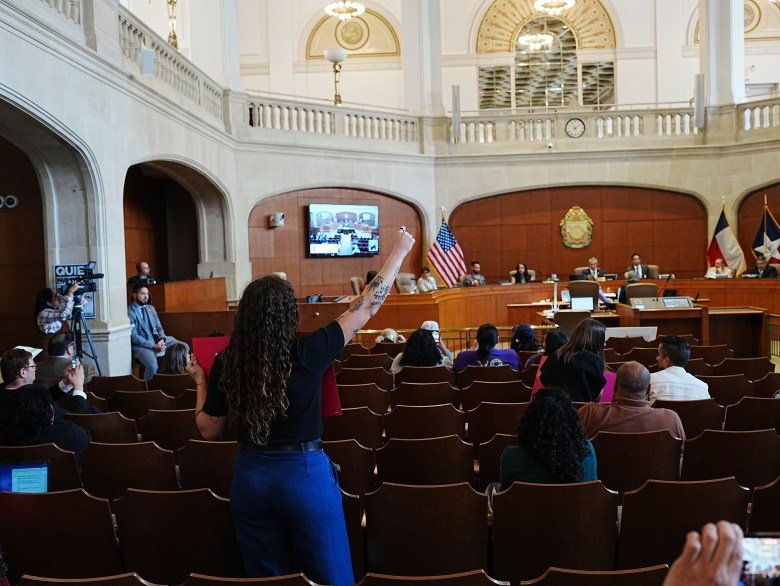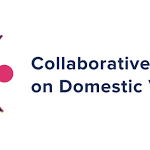In an election-year reversal, San Antonio city leaders voted 6-5 Thursday to fast-track distribution of $100,000 to organizations that provide reproductive services, including emergency contraception and transportation for out-of-state abortion care.
Just months ago, city staff shut down a similar plan, skipping over groups that provide such services after council members spoke against the idea while debating how to distribute a new $500,000 Reproductive Justice Fund.
Since that November decision, some council members had been clamoring to come back and take the issue to a vote, which landed just weeks out from a municipal election that’s become increasingly partisan.
Four sitting council members — Adriana Rocha Garcia (D4), Melissa Cabello Havrda (D6), Manny Pelaez (D8) and John Courage (D9) — are all running for mayor.

Of those, Havrda, who led the charge for Thursday’s vote, was the only one to support the distribution of funds for abortion services — while all three of the council’s other mayoral contenders voted against it.
“We’re watching the consequences of the state abortion bans unfold in real time, and what we’re seeing is a public health crisis,” said Cabello Havrda, an attorney. “Some might ask if this is really the city’s responsibility, and the answer is real simple: ‘Yeah, it sure is.’”
On Thursday the council chamber was also filled with other candidates eager to weigh in on the issue, including conservative mayoral hopefuls Tim Westley and Rolando Pablos, as well as Raymond Zavala, a candidate in District 5, who all opposed the fund.
Though all three of the council’s other mayoral candidates support abortion rights, they rejected the idea that the $100,000 would be a helpful or appropriate use of city funds.

“Why are we using this time and our resources today to debate abortion?” said Courage, a center-left mayoral candidate who voted against the fund. “It’s because two or three liberal-minded council members want the city to go on record to support abortion and all the rest of the council has been brought into it.”
Council members Sukh Kaur (D1), Jalen McKee-Rodriguez (D2), Phyllis Viagran (D3), Teri Castillo (D5) and Cabello Havrda cast the yeas, along with Mayor Ron Nirenberg, to pass the measure.
Marina Alderete Gavito (D7) and Marc Whyte (D10) joined Rocha Garcia, Pelaez and Courage in voting no.
A short-lived solution?
In the wake of Texas’ 2021 near-total abortion ban, San Antonio is among a handful of cities that have sought other ways to help residents continue accessing abortion services.
Austin, for example, included money in its 2024-2025 budget to help cover the cost of airfare, gas, hotel stays, child care, food and companion travel for people seeking out-of-state abortions.
But Thursday’s decision to add abortion travel to San Antonio’s reproductive health fund comes as the GOP-led Texas Legislature is already working on plans to outlaw such spending.
A bill crafted by state Sen. Donna Campbell (R-New Braunfels), who represents part of San Antonio, would ban local governments from giving money to “abortion assistance entities,” which includes paying for travel costs or helping find abortion-inducing medication.

On Thursday, some city leaders were adamant that pending legislation should not stop their efforts to protect their residents, while others were skeptical of a potentially expensive legal fight.
Pelaez, who is also an attorney, contended that the move equated to “lighting $100,000 on fire” given the current political landscape.
“The cost of that lawsuit will eclipse the $100,000 by many orders of magnitude, and we’re going to lose,” he said.
Segovia said that if Campbell’s bill becomes law, the city’s contracts will be written in a way that allows the city to “pivot” and stay in compliance.
A second chance for abortion-centric groups
San Antonio’s reproductive health fund was created in a last-minute addition to city’s 2024 budget.
Though it initially sought proposals from groups that help South Texas women access abortion services, after many heated council debates, city staff didn’t recommend any proposals from groups that provide those services.
Instead the money was directed to groups providing services like health care navigation, contraceptives, prenatal support and STI education.
After Thursday’s vote, the next round of funding will seek proposals to address a more specific list of reproductive health services, including pregnancy tests, doulas and transportation to abortion care, among other services.

That will allow the city to go back to some of the groups that had their initial applications rejected, or that didn’t include abortion assistance in their proposals, but would like to.
Out of 10 organizations that originally applied, the city said nine were interested in an additional funding opportunity for so-called “downstream” services, three were interested specifically in providing travel for abortion care, and one indicated it would be interested if the city provided legal protection for the organization.
Because of the work that’s already gone into soliciting that feedback, the grant process will move faster than usual. The city aims to request proposals later this month, complete the evaluation by mid June and authorize contracts by this summer.
Interested applicants include Jane’s Due Process, which helps young people find abortion access, and Sueños Sin Fronteras de Tejas, which assists immigrants, undocumented and asylum-seeking people seeking reproductive care, according to a presentation from the city.













